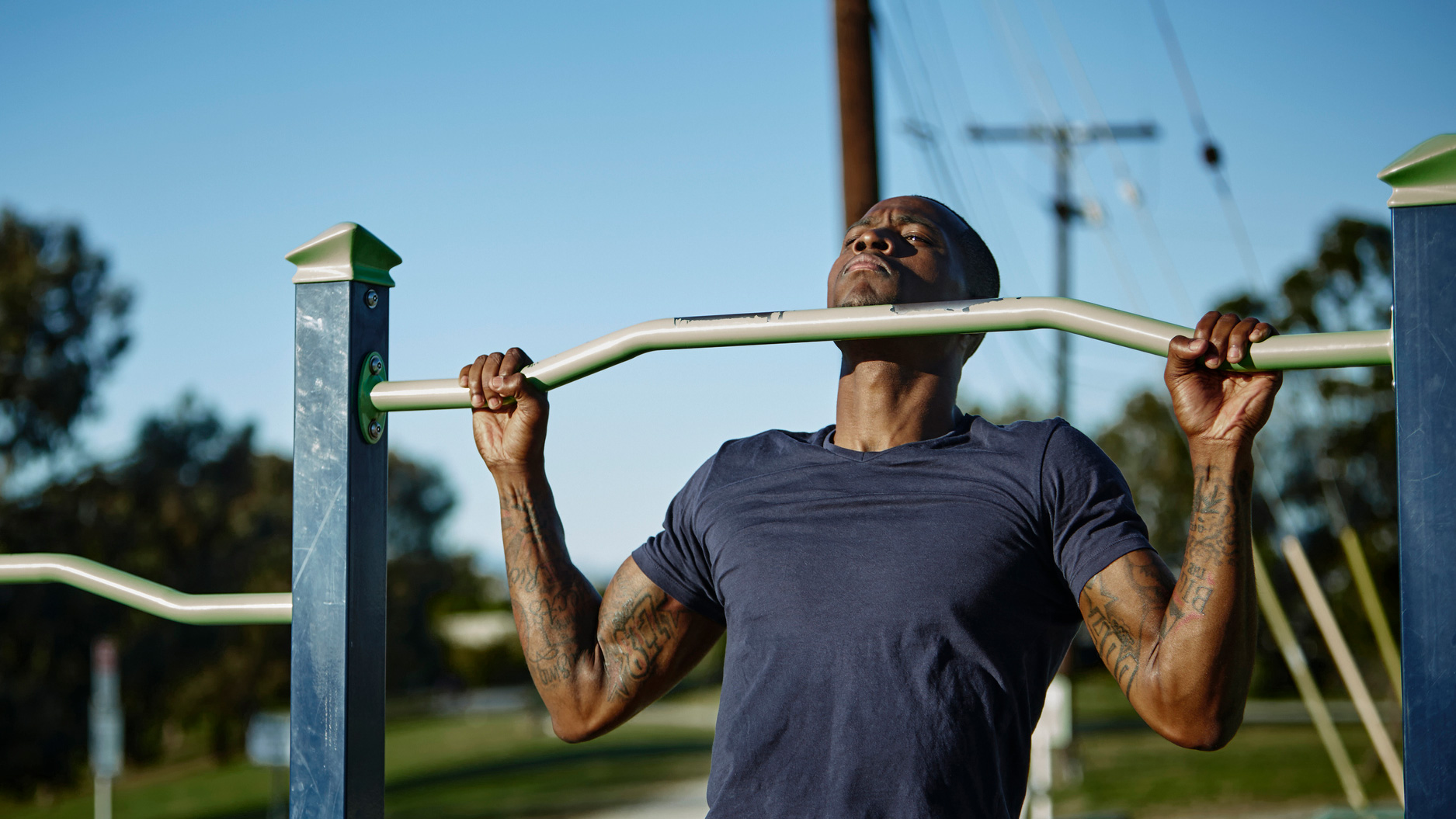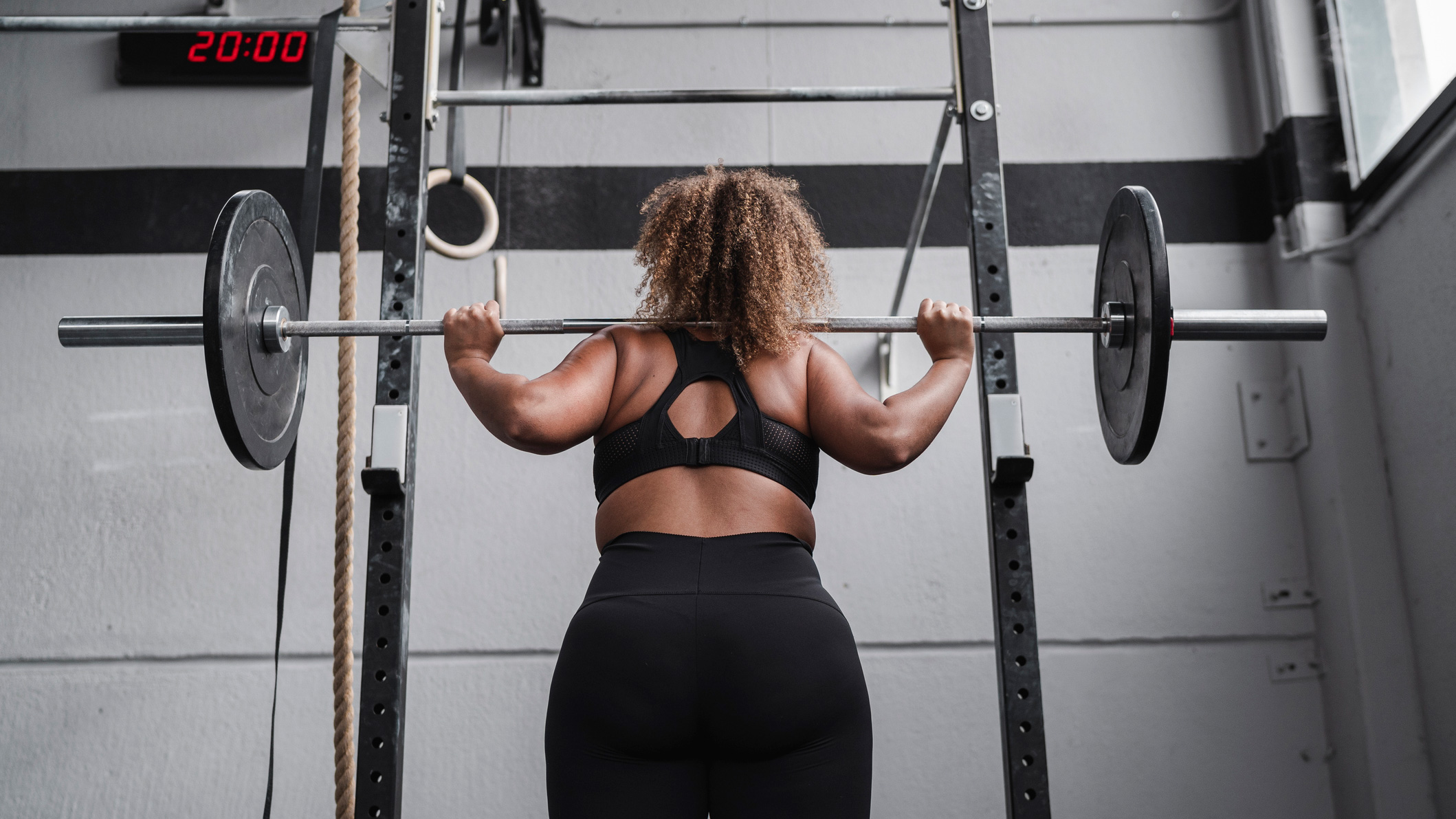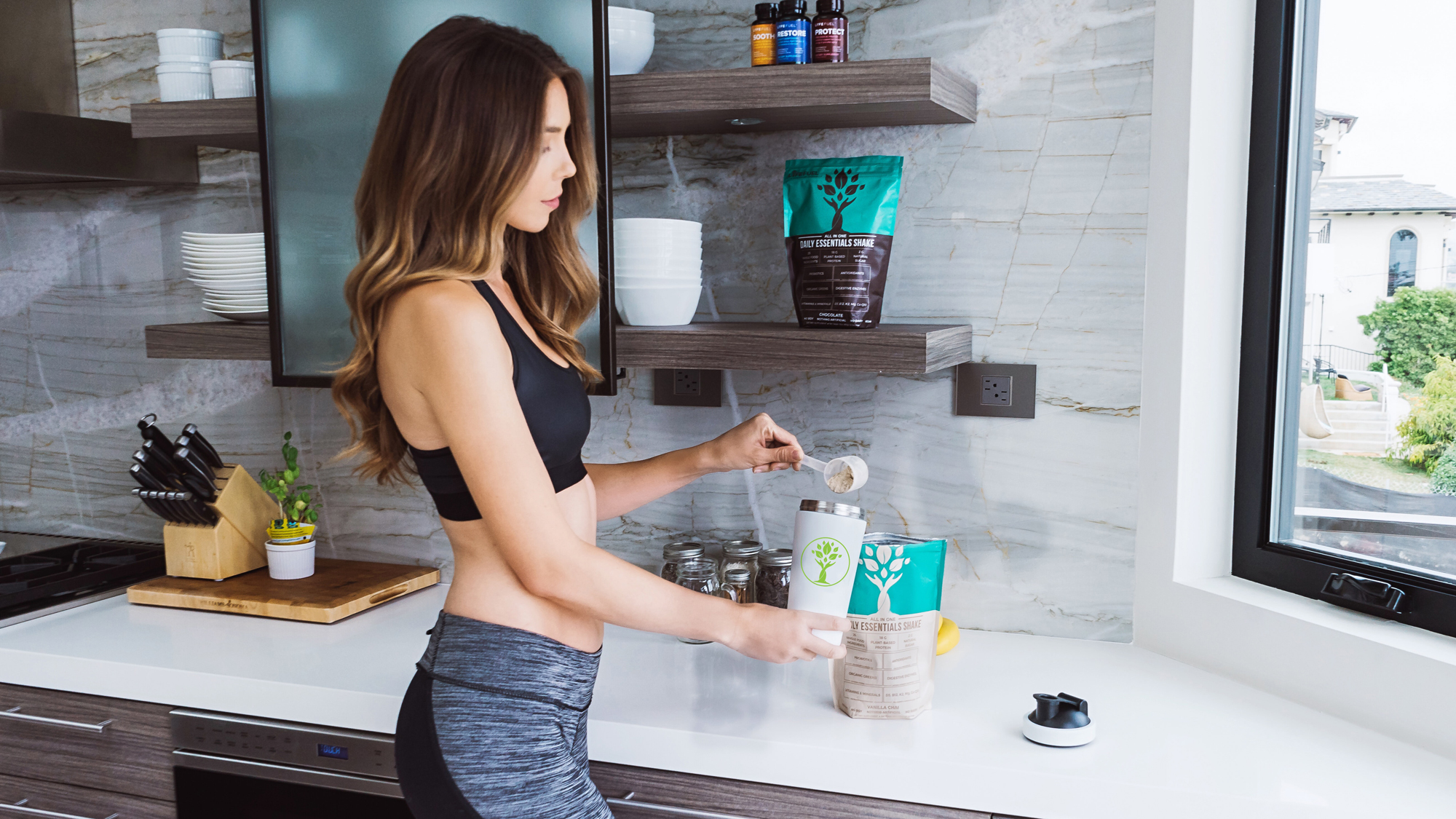Can you build muscle without weights?
Can you build muscle without weights? Absolutely. Learn how you can increase and tone muscle without heavy weights


You already know that lifting weights can help you build muscle. But can you build muscle without weights? If hanging out in the weights room isn’t your thing, and you don’t have room for much equipment at home, you may be still be looking for gains with limited resources.
Despite the widespread belief that muscles only grow after lifting heavy, you can and will build muscle just as effectively using lighter weights and higher reps. So whether you’re training with resistance bands, the best adjustable dumbbells, or bodyweight exercises, it’s easy to design an exercise program to help you build muscle even if you’re not hitting the barbells in the gym.
We spoke to a personal trainer to explain how the muscle-building process works, and how to get results without needing barbells and plates. Below, you’ll find out more about building muscle without weights, including whether you need heavy or light weights to bulk up and the other factors that contribute to muscle building.
Do you need to lift weights to build muscle?
Liam Cavanagh, personal trainer and founder of Bel, the world's first online coach matching service, says, “Weights can make it easier to build muscle, but you don’t always need them. Building muscle comes from working your muscles through certain ranges of motion with resistance. That resistance will challenge your muscles whether it’s a dumbbell or your body weight.”
“The key is to make sure you’re utilizing a mechanism known as progressive overload, which involves introducing your muscles to new stimuli. Most people assume that new stimuli is just increased weight, but it could be anything like more reps, slower reps, adding pauses in the middle of reps, and in this way, you can definitely build muscle without lifting weights.”
Some research has weighted loaded exercises against bodyweight moves, showing similar results in muscle gained. For example, one small study comparing a loaded bench press to a bodyweight push-up demonstrated similar muscle gains in the pectoral muscles and triceps after eight weeks.
And in another study, one group did a series of elbow flexion exercises (like bicep curls) with a heavy load. The other did the exercises with bodyweight, maintaining tension throughout the full range of motion. The bodyweight group had a comparable increase in muscle size to the group with a heavy load.
Start your week with achievable workout ideas, health tips and wellbeing advice in your inbox.

Do you need heavy or light weights to build muscle?
Cavanagh explains that the heaviness of the weight doesn’t always matter, “If you’re using progressive overload, then you’ll be able to build muscle whether the weights are ‘light’ or ‘heavy.’ Increasing the weight you lift is a great way to make things progressively more challenging, but it isn't the only way.
"What you want to aim for when building muscle, is finishing a set and having 2-3 reps left in reserve. If you don’t want to lift ‘heavy’ weights, then you could get to that stage of finishing a set with 2-3 reps left in the tank by doing slower reps, or adding more reps. Both of these will make the set harder without actually having to lift a heavier weight.”
Science backs up the theory that you don’t have to lift heavy to see results. Researchers studied a group of men who trained their legs three times a week for ten weeks. One leg was trained using high reps and light weights (three sets of 30-40 reps), and the other with heavy weights and lower reps (three sets of 10-12 reps). The results found that the amount of new muscle added to both legs was almost identical.
As with any type of exercise, there's always a risk of hitting a plateau if you keep doing the same routine over and over without variation or testing your muscles in new ways. That's why it's crucial to constantly progress your program, adding variations to the exercises and increasing the challenge.

What other factors contribute to muscle building?
Cavanagh says that while multiple factors contribute to muscle growth, you should focus on sleep and protein intake to get the most bang for your buck.
“Building muscle is a symbiotic process, with sleep being just as necessary for growth as working out. When you work out, you create micro-tears in your muscle fibers, making them weaker. Then, when you sleep, your body goes to work repairing those muscle fibers and adding new ones, making you stronger than they were before. So, without sufficient sleep, you won’t actually build new muscle! Try to aim for an average of 7-9 hours a night.”
Lack of sleep may also contribute to increased hunger. Research shows that your body decreases the production of a hormone that indicates when you feel full and increases an appetite-inducing hormone without sleep. Changes in these hormones mean that when you sleep less, you feel more hungry, and you are likely to increase the amount you eat since you don't feel full as quickly.
The American College of Sports Medicine states that to increase muscle mass in combination with physical activity, it is recommended that a person that lifts weights regularly or is training for a running or cycling event eat a range of 1.2-1.7 grams of protein per kilogram of body weight per day, or 0.5 to 0.8 grams per pound of body weight. So, for example, if you weighed 70kg, you would aim for 84-119g of protein a day.
Proteins are the building blocks of your muscles. Therefore, eating adequate protein helps you maintain your muscle mass and promotes muscle growth when you do strength training. Multiple studies show that eating plenty of protein can help increase muscle mass and strength. So if you’re trying to gain muscle, you need to make sure you’re getting enough protein. Our best protein powder for weight loss list can help you maintain muscle growth with minimal added calories.
For more on gaining muscle, we answer; does walking build muscle?
Matt Evans is an experienced health and fitness journalist and is currently Fitness and Wellbeing Editor at TechRadar, covering all things exercise and nutrition on Fit&Well's tech-focused sister site. Matt originally discovered exercise through martial arts: he holds a black belt in Karate and remains a keen runner, gym-goer, and infrequent yogi. His top fitness tip? Stretch.
